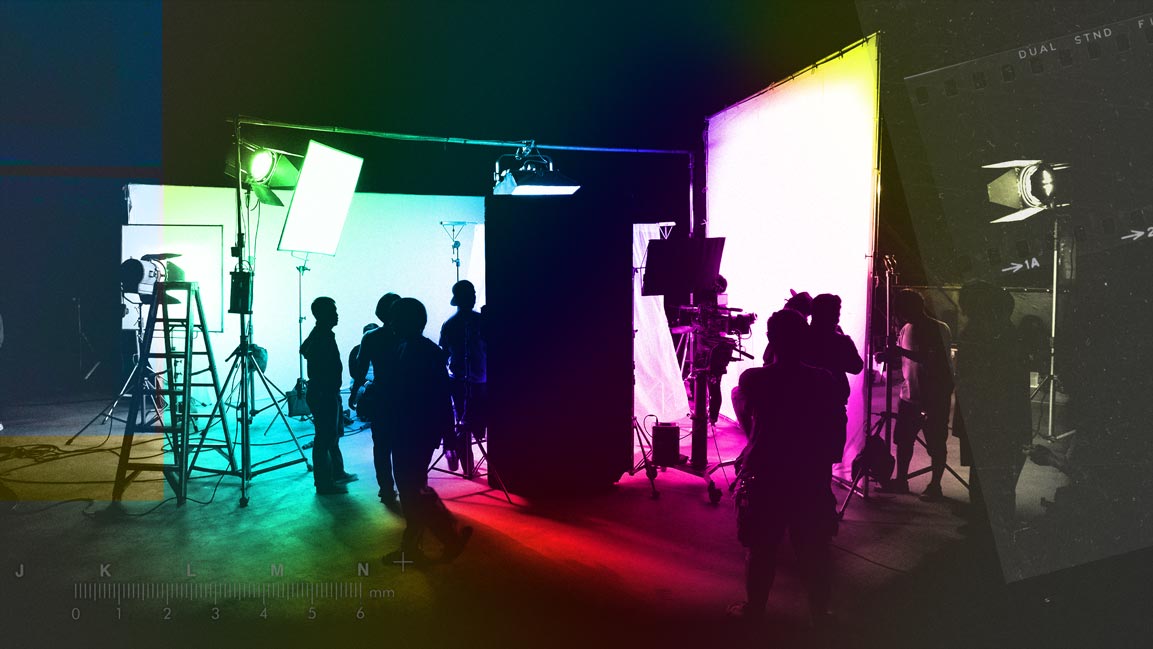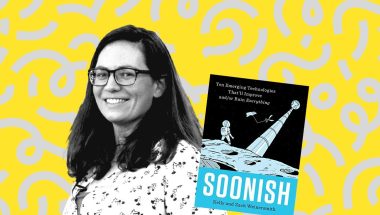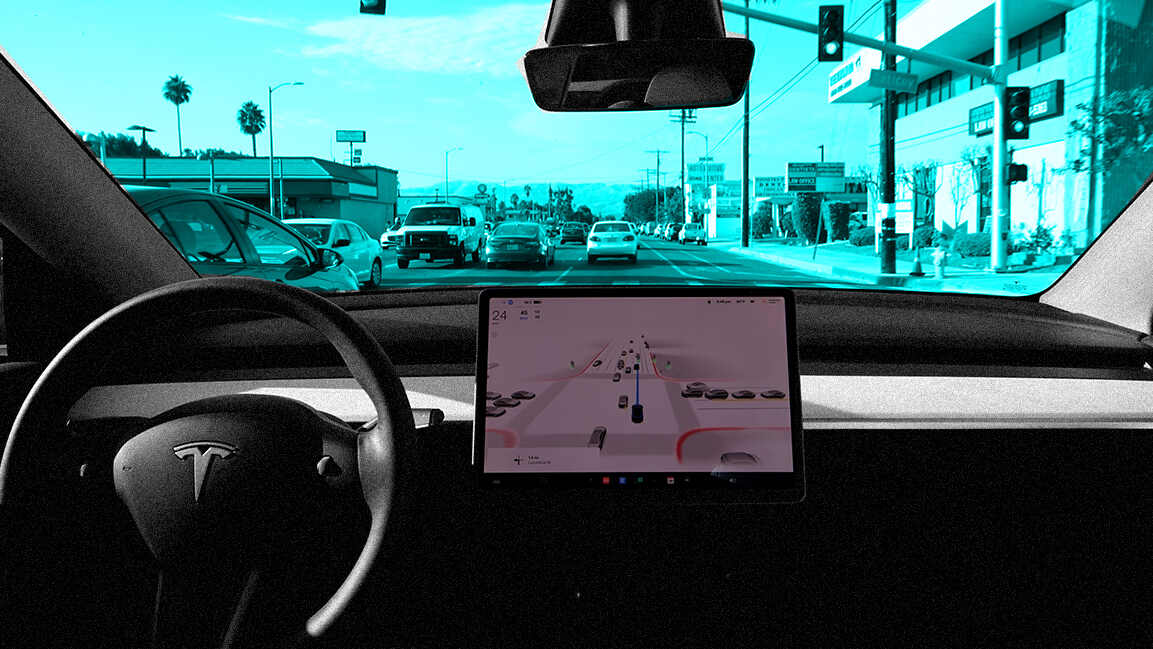- | 9:00 am
Are incentives enough to build a sustainable film industry in the UAE?
The industry needs an ecosystem that rewards risk-taking and bold storytelling

As a rising cultural hub, the UAE is home to talented filmmakers. Yet building a sustainable film industry remains a challenge.
Few know this better than Uzair Merchant, an award-winning Indo-Canadian filmmaker. Having spent much of his youth in Dubai, Merchant recalls the early struggles: “Back in the day, there was no film industry here,” he says. “No opportunities to leverage, nothing like what you’d find in LA or London. I wanted to go into the arts and film, but it wasn’t here—and that was a struggle.”
But over the past 10 years, Jesika Menon, Co-founder of The Gaia Centre and The Confidence Lab, says, there’s been a rise in possibilities for anyone seeking a creative path. “With performing and creative arts gaining traction in Dubai, young people are more confident investing in their passions, even if they are not conventional.” Many of her alumni are now pursuing careers in directing and fine arts.
Merchant acknowledges this progress, having worked on major productions such as Fast & Furious and The Misfits, which was shot in Abu Dhabi with Pierce Brosnan. Yet he stresses the gaps that remain.
“The biggest challenge isn’t finding opportunities—it’s sustaining them. Making a living, supporting a family, having a steady income—that’s where the gap lies.”
Mohammed Alabadi, a filmmaker who began his career as a visual effects artist before becoming an assistant director and editor on films such as Hajwala 2 and Uncle Naji, shares the same concern.
His work earned recognition at festivals in Toronto and Sydney, and in 2024, he directed his first feature film, Malik Salah, filmed between the UAE and Egypt. “One of the main challenges we face is that some producers significantly reduce production budgets, which negatively impacts the quality of local works.”
WHOSE STORIES ARE WE TELLING?
But money is only part of the story. For many filmmakers, the deeper struggle lies in cultural grounding and authentic storytelling.
“Coming from a third-culture background—born Indian, became Canadian—you suffer from this identity crisis,” says Merchant. “You don’t belong where you’re from, and you don’t belong where you are. But in the film industry, you need to belong somewhere. In the arts, that grounding is essential.”
Alabadi agrees, noting that many local films fail to connect with audiences. “Sometimes the stories told do not reflect our culture or attract audiences because they don’t truly represent us, creating a stereotypical image of local films,” he says.“But we are starting to see works that reflect us more authentically and compete internationally with notable success.”
For both, authenticity is essential if the UAE’s stories are to resonate beyond its borders.
INCENTIVES WITHOUT ECOSYSTEM
The government plays a vital role in supporting Emirati cinema, prioritizing local films and awarding annual cultural grants. “This has strengthened the industry and opened wider horizons for creatives,” says Alabadi.
However, Merchant argues that the support is fragmented and lacks depth. “There’s no infrastructure and no sustained funding. Look at Korea—their film industry took off because of a film fund. In one class, you had the directors of Parasite and Squid Game. That’s what happens when you empower artists from the ground up, where they are allowed to make mistakes. Here, the focus is on TikTokers, YouTubers, and metadata.”
“That’s marketing, not art. Dubai has a Creators Lab for content creators, which is fine—but where’s the equivalent for filmmakers and musicians?”
Pointing to the absence of clear pathways for aspiring creatives, Menon says many learners pursue their passion in stages—school, university, and short freelance stints. “What’s missing is a secure pathway that allows them to take it up professionally, if they choose to. The arts are often treated as hobbies, not professions, making it harder for young creatives to feel validated.”
Alabadi adds: “Opportunities exist, but the profession must be treated seriously and held to global standards. Digital platforms are a powerful equalizer, quickly connecting talent with audiences, but cinema requires more than visibility. It requires respect and investment.”
REBATES AREN’T ENOUGH
Even with financial incentives, the UAE struggles to compete with global markets. “In Abu Dhabi, you get a 35% rebate if you spend a certain amount, hire a local crew, and meet other criteria,” says Merchant. “But it’s complicated and expensive. Why would I shoot here if I can get the same rebate in Spain or Romania with fewer restrictions? Mission: Impossible was great for the city’s image, but didn’t create lasting jobs for the local industry.”
Menon highlights the need for grassroots accessibility. “Too often, opportunities remain limited to the well-connected or those in big cities, leaving grassroots talent without the venues, mentorship, and recognition they need to grow. We need more celebration of the arts in schools, recognition, and platforms for emerging performers and creators.”
All agree that it’s challenging to kickstart without government backing, funding, and subsidies. “Social media content is not cinema. Content keeps your mind busy; art and cinema are meant to inspire and evoke emotion,” says Merchant.
“We don’t have a proper system where filmmakers can explore and develop their voice,” he adds.
BUILDING RESILIENCE THROUGH RISK
Menon points to the Confidence Lab’s influence, which for more than 13 years has helped thousands step onto the stage, guided teenagers into unconventional careers, and supported adults in overcoming self-doubt.
“With more support from local and regional cultural bodies, young creatives will thrive beautifully,” she says.
Merchant shares a similar vision through his incubator, Kri8.Labs, which unite artists across disciplines. Its projects include Stardust—Dubai’s first NFT music video, shot entirely on an iPhone and screened at 14 international festivals—and cross-cultural hip-hop collaborations between Emirati and international talent.
Still, building a sustainable film industry will require both structural support and a willingness to embrace failure. Alabadi also points to the internet as a critical enabler. “We live in an era where talents are discovered quickly thanks to the internet… Digital platforms already play a sufficient role in connecting emerging talents with audiences.”
While systemic changes are vital, the digital ecosystem already provides a global stage for regional voices.
The key lies in experimentation. Merchant says, “As artists, you must be allowed to fail; without failure, how can you explore or break through? Look at the biggest tech companies: their largest investments go into research and development, essentially the process of failing forward. Giving artists that same freedom to experiment and stumble ultimately allows creativity to flourish.”
For the UAE to compete on the global film stage, it must give its storytellers what every great industry is built on—not just funding or visibility, but the freedom to fail forward.






































